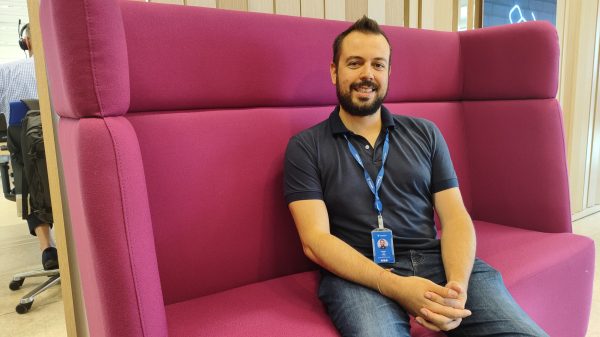Sometimes it’s that nagging feeling that sets in when things don’t go as expected, and sometimes it’s a bigger block that leaves us feeling trapped, unable to move forward. However, as uncomfortable as it can be, frustration is also an opportunity to learn and grow, as long as we know how to manage it properly.
Imagine you are in the office, working on a project you have been developing for weeks. Suddenly, you receive feedback that, far from being positive, points out multiple mistakes and suggests significant changes. It’s natural to feel frustrated; you’ve invested time and effort, and now it seems like it’s all for nothing. But this is where frustration management comes in. Instead of letting this emotion drag you down, you can choose to see it as a sign that something needs to improve. Taking a breath, analysing criticism with an open mind and seeing it as an opportunity to refine your work can transform a frustrating experience into a springboard to an even better outcome.
The same is true in our personal lives. Perhaps you are trying to learn something new, like playing an instrument or a language, and you feel that you are not making progress, that no matter how hard you practice, the results are not coming. This feeling of stagnation can be incredibly frustrating. However, learning to manage that frustration is key to not giving up. If every time something doesn’t go as expected you decide to give up, you are closing the door to many opportunities for personal growth. On the other hand, by accepting that frustration is part of the learning process and using it as motivation to keep trying, you give yourself the opportunity to better yourself.
Managing frustration is not only helpful in avoiding emotional burnout, but also has a direct impact on our personal and professional relationships. A person who knows how to manage his or her frustration is more likely to maintain healthy relationships, both at work and in his or her personal life. Why? Because it does not allow negative emotions to build up and flare up at inopportune moments, often resulting in unnecessary conflict. Instead, good emotional management allows you to communicate assertively, to express how you feel without hurting others, and to look for solutions rather than creating problems.
Finally, learning to manage frustration also makes us more resilient. It teaches us that even if things do not always go our way, it does not mean that we are not in control of our reactions and decisions. Resilience is the ability to adapt to adversity and move on, and frustration, when handled well, is a powerful tool for developing this skill.
Frustration, while uncomfortable, is not necessarily a bad thing. By learning to manage it, we can turn it into an ally that drives us to improve ourselves, maintain healthy relationships and become more resilient in life. So the next time you feel frustrated, remember that you have the power to decide how to deal with that emotion, and choose to transform it into something positive.
Gisela Pulido, an example of self-improvement
Gisela Pulido is a legend in the world of kitesurfing, and her story is a mixture of talent, hard work and constant learning. A story of effort that she tells in Mejor Conectados, an initiative of Telefónica. At just ten years old, Gisela was crowned freestyle kitesurfing world champion, an impressive achievement that marked the beginning of a career full of success. Today, at the age of thirty, she continues to be a leading figure in the sport, having won multiple world titles and participated in the Paris 2024 Olympic Games in a new sport for which she has had to start from scratch.
Throughout her career, Gisela has not only had to overcome the physical and technical challenges of kitesurfing, but also the mental and emotional obstacles that accompany the life of an elite athlete. One of the biggest challenges has been learning to manage frustration. After winning her tenth world championship, Gisela faced a lack of motivation that left her at a turning point. She felt she no longer had a clear challenge to aspire to, which led her to seek a new focus in her life and career.
This moment of personal crisis coincided with a major change in her life: the transition in her relationship with her father, who had been her coach for years. Both had to redefine their roles, which was a difficult but necessary process to move forward, both in her personal and professional life. This learning about frustration management not only strengthened their relationship, but also allowed Gisela to enjoy her career and achievements more without the constant pressure of competition.
Today, Gisela Pulido continues to compete at the international level, but with a renewed mentality. Thanks to working with her psychologist, she has learned that true success is not only measured in medals, but in personal growth and the ability to enjoy every moment.









